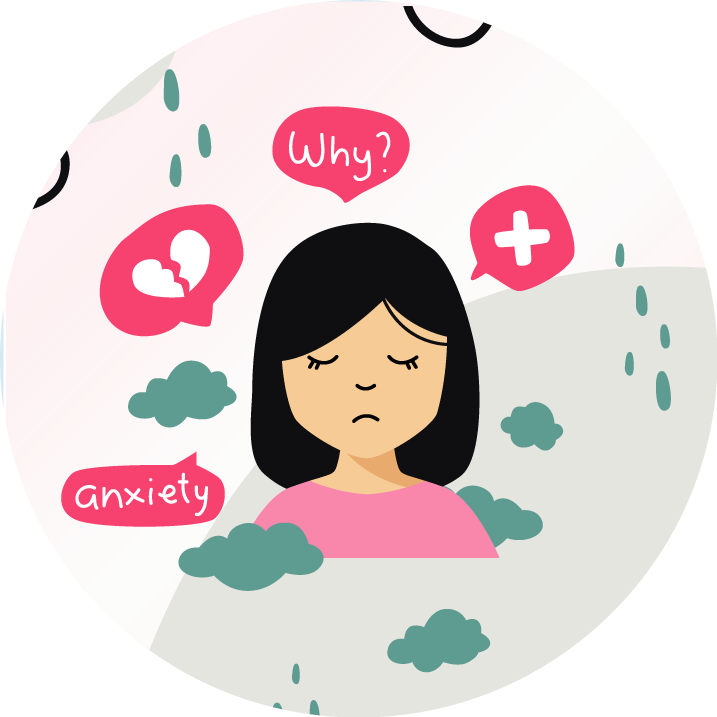How to Use Techniques of Neuroplasticity to Rewire Your Brain
.svg)
How to Use Techniques of Neuroplasticity to Rewire Your Brain
May 03 2025 TalktoAngel 0 comments 1195 Views
The capacity of the human brain to evolve and adapt throughout a lifetime is astounding. This phenomenon, known as neuroplasticity, allows us to rewire our brains by forming new neural connections in response to learning, experiences, and even injuries. By harnessing neuroplasticity, you can break negative thought patterns, improve cognitive function, and develop healthier habits. In this blog, we will explore practical techniques to leverage neuroplasticity and rewire your brain for a better life.
Understanding Neuroplasticity
The brain's capacity to rearrange itself by forging new neural connections and fortifying pre existing ones is known as neuroplasticity. This process is influenced by learning, environment, emotions, and experiences. Scientists once believed that the brain’s structure was fixed after childhood, but research has proven that we can reshape our neural networks at any age.
Techniques to Rewire Your Brain
1. Mindful Meditation
Mindfulness and meditation have been shown to strengthen neural pathways associated with focus, emotional regulation, and resilience. Regular practice can help reshape the brain by increasing grey matter density in areas responsible for memory, learning, and self-awareness.
How to Practice:
- Start with 5–10 minutes of meditation daily.
- Focus on your breath or a mantra.
- Observe your thoughts without judgment and bring your focus back when distracted.
2. Engaging in New Learning
Learning new skills or acquiring knowledge stimulates neuroplasticity. Whether it’s picking up a new language, playing a musical instrument, or solving puzzles, engaging in intellectually stimulating activities strengthens cognitive function and enhances brain flexibility.
How to Practice:
- Challenge yourself with new hobbies like painting, cooking, or coding.
- Read books on diverse subjects to expand your knowledge base.
- Try brain-training games like Sudoku, crossword puzzles, or chess.
3. Physical Exercise
Exercise promotes neurogenesis (the formation of new neurons) and enhances synaptic plasticity. It increases blood flow and oxygen to the brain, improving cognitive abilities and emotional well-being, and physical health.
How to Practice:
- Engage in at least 30 minutes of aerobic exercise (walking, jogging, swimming) daily.
- Include strength training and flexibility exercises for overall brain health.
- Try activities that require coordination, like dance or martial arts.
4. Positive Thinking and Gratitude
Your thoughts shape your neural pathways. While positive thinking enhances pathways linked to optimism and resilience, negative thinking maintains stress circuits. Practicing gratitude and self-affirmations can rewire your brain for happiness.
How to Practice:
- Keep a gratitude journal and write three things you’re grateful for daily.
- Replace negative self-talk with positive affirmations.
- Visualise success and positive outcomes regularly.
5. Quality Sleep
Sleep plays a vital role in memory consolidation, learning, and emotional processing. The brain fortifies beneficial neural connections and eliminates superfluous ones as you sleep deeply.
How to Practice:
- Maintain a sleep schedule (7-8 hours per night).
- Avoid screens and caffeine before bedtime.
- Create a relaxing nighttime routine.
6. Healthy Diet for Brain Health
Nutrition impacts neuroplasticity by providing essential nutrients that support brain function. A balanced diet rich in antioxidants, omega-3 fatty acids, and vitamins enhances neural growth and cognitive performance.
How to Practice:
- Eat foods high in omega-3s (fish, walnuts, flaxseeds).
- Incorporate foods high in antioxidants, such as dark chocolate, berries, and green leafy vegetables.
- Stay hydrated and limit processed foods and sugar intake.
7. Social Interaction and Connection
Strong social ties improve cognitive flexibility and excite the brain. Engaging in meaningful conversations, teamwork, and social activities strengthens neural pathways related to empathy, communication, and emotional intelligence.
How to Practice:
- Spend quality time with family and friends.
- Join clubs, community groups, or online forums.
- Practice active listening and empathy in conversations.
8. Breaking Bad Habits
Repetitive negative behaviours reinforce unhelpful neural pathways. By consciously replacing them with healthier habits, you can rewire your brain for positive change.
How to Practice:
- Identify triggers and replace old habits with new, positive behaviours.
- Use the “habit stacking” technique.
- While you create new neural connections, be patient and consistent.
9. Visualisation and Mental Rehearsal
Your brain cannot always distinguish between real and imagined experiences. Visualisation and mental rehearsal can strengthen neural pathways related to desired behaviours and skills.
How to Practice:
- Close your eyes and vividly imagine yourself setting goal and achieving a goal.
- Use all five senses to make the visualisation realistic.
- Repeat mental rehearsals daily to reinforce positive outcomes.
10. Practising Kindness and Altruism
Dopamine and oxytocin are released when the brain's reward system is activated by deeds of kindness and compassion. This reinforces neural pathways associated with happiness and well-being.
How to Practice:
- Perform small acts of kindness, such as helping a colleague or complimenting someone.
- Volunteer for a cause you care about.
- Practice self-compassion by being kind to yourself.
Conclusion
Neuroplasticity gives you the power to reshape your brain and create a more fulfilling life. With the right guidance and consistent practice, you can strengthen beneficial neural connections, enhance cognitive function, and build emotional resilience. Change may not happen overnight, but your brain is capable of remarkable transformation.
Whether you're aiming to overcome anxiety, manage stress, or improve focus and well-being, therapies rooted in neuroscience, like Cognitive Behavioural Therapy (CBT), Mindfulness-Based Therapy, or Acceptance and Commitment Therapy (ACT), can support this journey.
You may get online counseling from the convenience of your home with TalktoAngel.Our team of qualified therapists, including some of the best psychologists in India, is here to help you apply these evidence-based techniques and empower your mental health. Start today. Embrace the science of neuroplasticity with the right support and rewire your mind for lasting success and well-being.
Contributed By: Contributed by Dr. (Prof.) R. K. Suri, Clinical Psychologist and Life Coach, & Ms. Srishti Jain, Counselling Psychologist.
References
- Doidge, N. (2007). The brain that changes itself: Stories of personal triumph from the frontiers of brain science. Viking Press.
- Doidge, N. (2015). The brain's way of healing: Remarkable discoveries and recoveries from the frontiers of neuroplasticity. Penguin Books.
- Merzenich, M. (2013). Soft-wired: How the new science of brain plasticity can change your life. Parnassus Publishing.
- Pascual-Leone, A., Amedi, A., Fregni, F., & Merabet, L. B. (2005). The plastic human brain cortex. Annual Review of Neuroscience, 28, 377-401.
Leave a Comment:
Related Post
Categories
Related Quote

“Treat a man as he is and he will remain as he is. Treat a man as he can and should be and he will become as he can and should be.” - Stephen R

“Anxiety is a thin stream of fear trickling through the mind. If encouraged, it cuts a channel into which all other thoughts are drained.” - Arthur Somers Roche

"It is okay to have depression, it is okay to have anxiety and it is okay to have an adjustment disorder. We need to improve the conversation. We all have mental health in the same way we all have physical health." - Prince Harry

“You say you’re ‘depressed’ – all I see is resilience. You are allowed to feel messed up and inside out. It doesn’t mean you’re defective – it just means you’re human.” - David Mitchell, Cloud Atlas

"Far too many people are looking for the right person, instead of trying to be the right person." - Gloria Steinem
Best Therapists In India






















SHARE